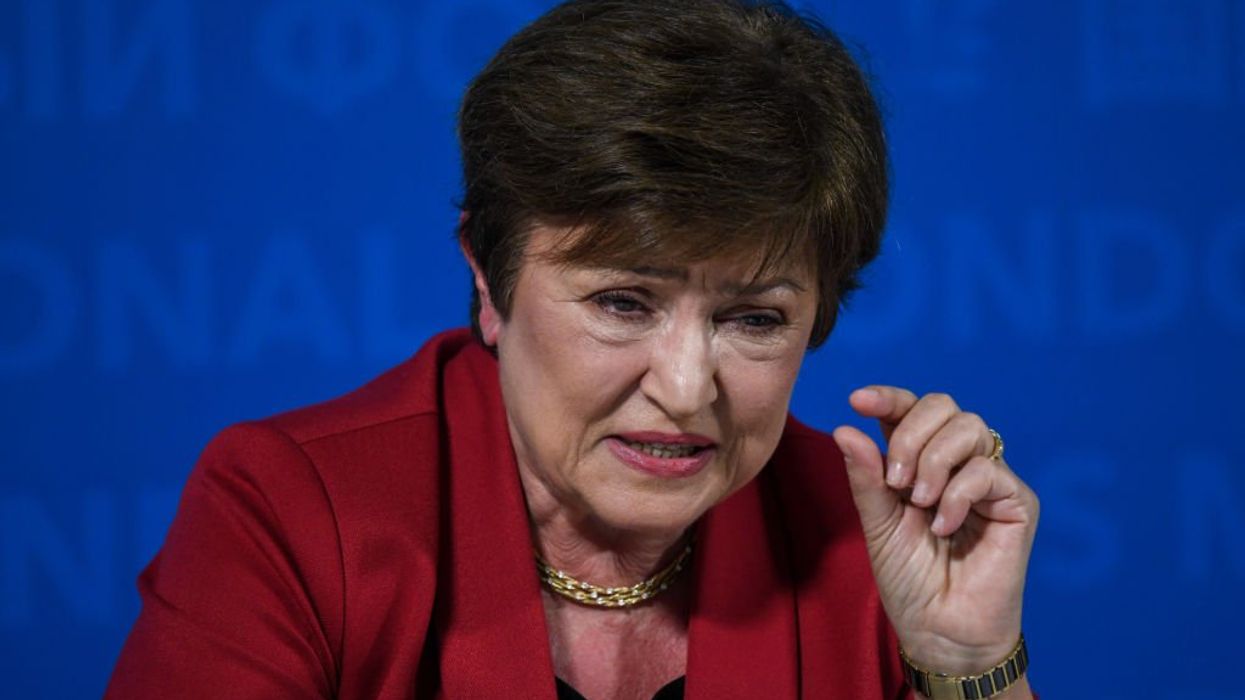
Chris J. Ratcliffe/Bloomberg via Getty Images

The International Monetary Fund is working on a platform to ensure interoperability between cash-killing central bank digital currencies.
Under the proposed common regulatory framework, central banks would control their respective CBDCs but adopt a single global ledger and adhere to international standards, thereby ensuring their digital currencies are not regionally fenced in, reported Reuters.
"CBDCs should not be fragmented national propositions," IMF managing director Kristalina Georgieva told a conference attended Monday by various African banks in Morocco. "To have more efficient and fairer transactions we need systems that connect countries: We need interoperability. ... For this reason at the IMF, we are working on the concept of a global CBDC platform."
To avoid generating a vacuum that could be allegedly exploited by decentralized cryptocurrencies, Georgieva suggested it is prudent for the 114 central banks presently exploring the possibility of implementing CBDCs, including the "10 already crossing the finish line," to reflect on the possible advantages of going beyond their domestic employment. A failure to do so, she suggested, would otherwise mean the under-utilization of noncompliant nations' CBDCs and their transformation into "settlement blocks."
Georgieva stressed, "We will pursue relentlessly together" the development of CBDCs.
Cointelegraph reported that the IMF's director of the monetary and capital markets department, Tobias Adrian, indicated the "cross-border
payments and contracting platform" would enable central banks to better intervene in foreign exchange markets, collect data on capital flows, and resolve disputes.
Adrian suggested in a corresponding June 19 IMF report that interoperability will depend upon the adoption of a shared international ledger where digital representations of central bank reserves in all currencies could be exchanged, adding that "the CBDC platform should not bar the private sector from operating its own ledgers offering settlement and programming functionalities."
"The CBDC system should be appropriately interoperable. The CBDC system should, where appropriate and consistent with other policy priorities, facilitate transactions with other currencies and systems, such as physical cash, commercial bank deposits, CBDCs issued by other monetary authorities, and the global financial system," said the report. "The CBDC system should be designed to avoid risks of harm to the international monetary system and financial system."
The White House suggested that if the U.S. pursued a CBDC, "there could be many possible benefits, such as facilitating efficient and low-cost transactions, fostering greater access to the financial system, boosting economic growth, and supporting the continued centrality of the U.S. within the international financial system."
Sen. Ted Cruz (R-Texas) is one of the more outspoken critics of an American CBDC.
TheBlaze previously reported that Cruz, who has argued the "federal government has no authority to unilaterally establish a central bank currency," has introduced legislation, (S.887), co-sponsored by Sens. Mike Braun (R-Ind.) and Chuck Grassley (R-Iowa), that would prevent the Federal Reserve from following the lead of totalitarian regimes like China in establishing a central bank digital currency. The bill notes that a CBDC would be used as a "financial surveillance tool by the federal government."
Some critics of the IMF's proposed platform reckon localized abuses would be globalized.
British entrepreneur and Bitcoin advocate Layah Heilpern claimed that under the proposed framework, "if you say the wrong thing in one country, you'll have nowhere to flee as they can switch your money off anywhere in the world in any jurisdiction," adding that this effort evidences a fear of losing financial control amid the emergence of decentralized cryptocurrencies.
The CATO Institute published a study in February that identified a number of faults with a CBDC, emphasizing that it would "most likely be the single largest assault to financial privacy since the creation of the Bank Secrecy Act and the establishment of the third-party doctrine."
The study indicated that a CBDC will make the process by which governments freeze someone's financial resources — as Canadian banks did in concert with the Trudeau government in its crackdown efforts on peaceful protesters in 2022 — easier and faster, having established "a direct line between citizens and the government itself."
A single global ledger may, to Heilpern's point, make extend the reach of various regimes.
Carol Roth, author of "You Will Own Nothing," noted earlier this year in TheBlaze, "Whether it is the Fed, the IMF, or otherwise, whoever controls the money controls your access to opportunities, your ability to access goods and services, and ultimately your life."
Like Blaze News? Bypass the censors, sign up for our newsletters, and get stories like this direct to your inbox. Sign up here!